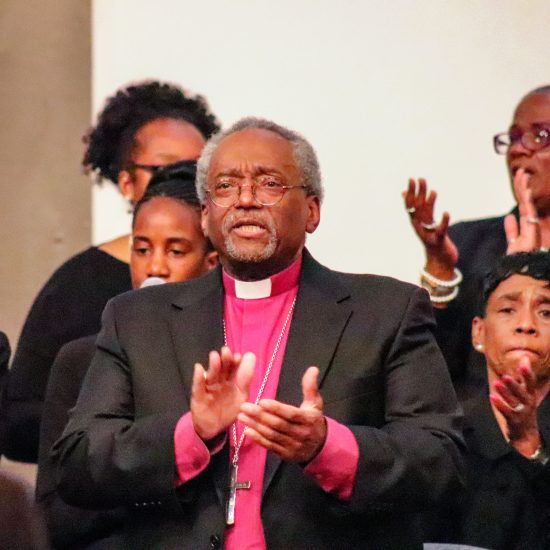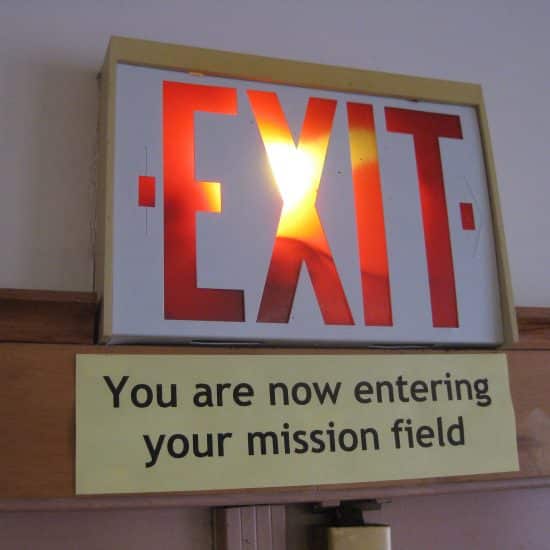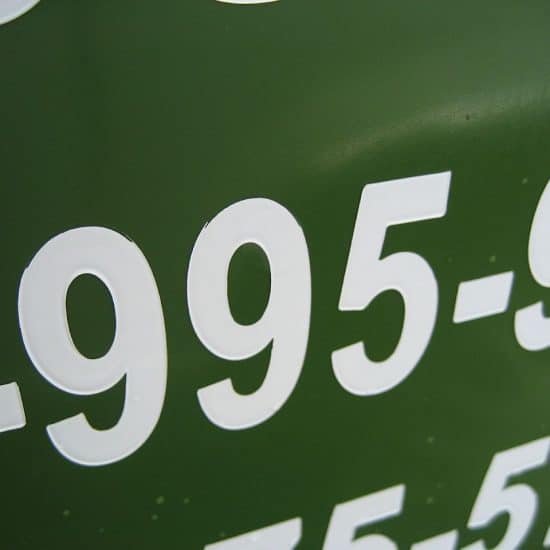NASHVILLE, Tenn. (ABP) – Southern Baptist leader Richard Land is blaming media bias for controversy over his recent remarks accusing black leaders and President Obama of using Trayvon Martin’s death to stimulate African-American voter turnout in the upcoming presidential election.
Following up April 14 on earlier comments from the Richard Land Live radio show, the head of the Southern Baptist Convention’s Ethics and Religious Liberty Commission claimed he was “mugged” by his local paper, The Tennesseean in Nashville, Tenn., on April 5. Land said a headline describing his comments a “rant” was biased, and the article quoted sources saying they could set back racial relations in the denomination while ignoring the fact that he was a key architect of a 1995 SBC resolution apologizing for Southern Baptists’ historic mistreatment of African-Americans.
“It was a very slanted article,” Land said.
Then, Land said, after he closed an interview on the Jansing & Co. television news program with a comment, “I think this is the most important election for the future of the United States since 1860,” MSBNC contributor Karen Hunter, who is black, remarked: “Did he say 1860? I wonder which side of the equation he was on then.”
“She’s an African-American and she’s racially profiling me,” Land said. “Because I work for the Southern Baptist Convention she is openly questioning whether I would have supported the pro-slavery candidates or the Confederacy in 1860 as opposed to Abraham Lincoln. Well, Karen, I have a bust of Abraham Lincoln in my office. Is that a clue to who I was for in 1860? I have said repeatedly on this broadcast and in others that Abraham Lincoln is the greatest president in the history of the United States, and however many presidents we have in the future he will always be the greatest president in the history of the United States and we were God-blessed to have him at that critical time of our history. So, Karen, you ought to be ashamed of yourself for implying motives and assuming things you shouldn’t assume. You were prejudiced. You racially profiled. Shame on you.”
Land has consistently defended comments from his March 31 program, during which he labeled activists Jesse Jackson and Al Sharpton “racial ambulance chasers” and “race hustlers” who profit from fomenting racial grievance, and said President Obama “poured gasoline on racialist fires” by mentioning the tragedy in a national press conference.
In an April 14 Associated Press story, Land said a black man is “statistically more likely to do you harm than a white man.” Land told the AP he didn’t think an African-American pastor’s threat to censure him in a Southern Baptist Convention resolution would get traction. “I have no doubt, based on the e-mails I have received, that a vast majority of Southern Baptists agree with me,” he said.
During Saturday’s radio program, Land told a caller that he didn’t agree that Jesse Jackson and Al Sharpton are racists. “I do think they tend to live in the past,” he said. “They tend to not understand the degree of progress that has been made in the last 40 years in civil rights.”
“Trayvon Martin is not Emmitt Till,” Land said, referring to the 14-year-old African-American boy whose 1955 murder for allegedly flirting with a white woman in Mississippi mobilized the civil-rights movement. “This is not the Old South,” Land said.
“Is George Zimmerman going to be crucified for the crimes of whites in generations past?” Land asked. “He had nothing to do with their behavior in the past. Was there an unjust justices system in the past? Yes, of course there was, and it was terrible, and it’s one reason why Dr. King was such a sensitive nerve among Americans, because they were appalled.”
Land said he believed the 1995 resolution on racial reconciliation he helped author “did lance a boil, so to speak,” in the nation’s second-largest faith group behind Roman Catholics. “At the time there were about 350,000 African-American Southern Baptists – African-Americans who had chosen to have their spiritual life within the confines of the Southern Baptist Convention,” Land said. “Today it’s about a million. So we have had a lot of success in African-Americans coming into the Southern Baptist Convention, largely as a result of that work that began with that apology. So I think it was meaningful.”
The resolution, adopted on the occasion of the SBC’s 150th anniversary, acknowledged for the first time Southern Baptists’ complicity in slavery and Jim Crow.
“We apologize to all African-Americans for condoning and/or perpetuating individual and systemic racism in our lifetime; and we genuinely repent of racism of which we have been guilty, whether consciously (Psalm 19:13) or unconsciously (Leviticus 4:27),” the resolution said in part. Further, it sought “forgiveness from our African-American brothers and sisters” and pledged to “commit ourselves to eradicate racism in all its forms from Southern Baptist life and ministry.”
As Land continued to stand by comments criticized both from within and outside the Southern Baptist fold, meanwhile, a Baptist blogger said most of the controversial parts were not his own words in the first place.
Aaron Weaver, a Ph.D. candidate at Baylor who blogs as The Big Daddy Weave, reported April 16 that many of Land’s comments were quoted verbatim from a Washington Times column penned by conservative commentator Jeffrey Kuhner. While a link to Kuhner’s March 29 commentary headlined “Obama foments racial division” appeared as a “story note” on Land’s website, Weaver said Land failed to cite the article during his radio show, leading listeners to mistakenly assume that the words were his own.
Weaver said Land also lifted comments from an Investor’s Business Daily editorial without attribution, linking to the editorial without comment in a program note.
“Richard Land’s rant is not his,” Weaver said. “It’s a plagiarized rant.”
Land released a statement April 16 apologizing for failure to "provide appropriate verbal attributions" during the March 31 broadcast. He called it an oversight and said it was not intended to deceive or mislead listeners.
-30-
Bob Allen is managing editor of Associated Baptist Press.
Previous story:
Land says activists using Trayvon Martin




